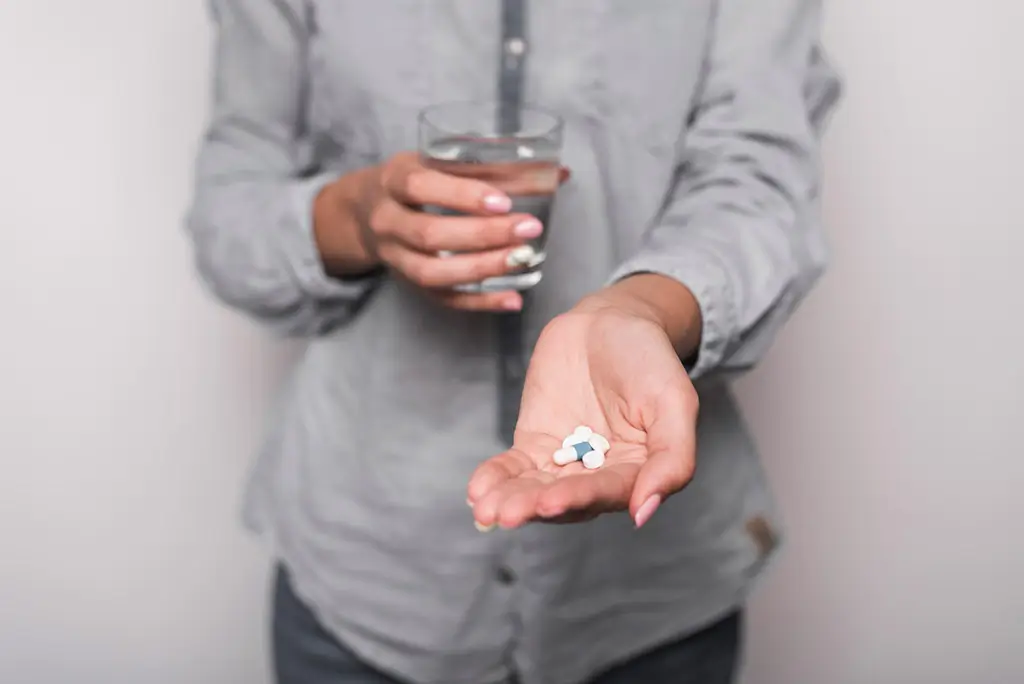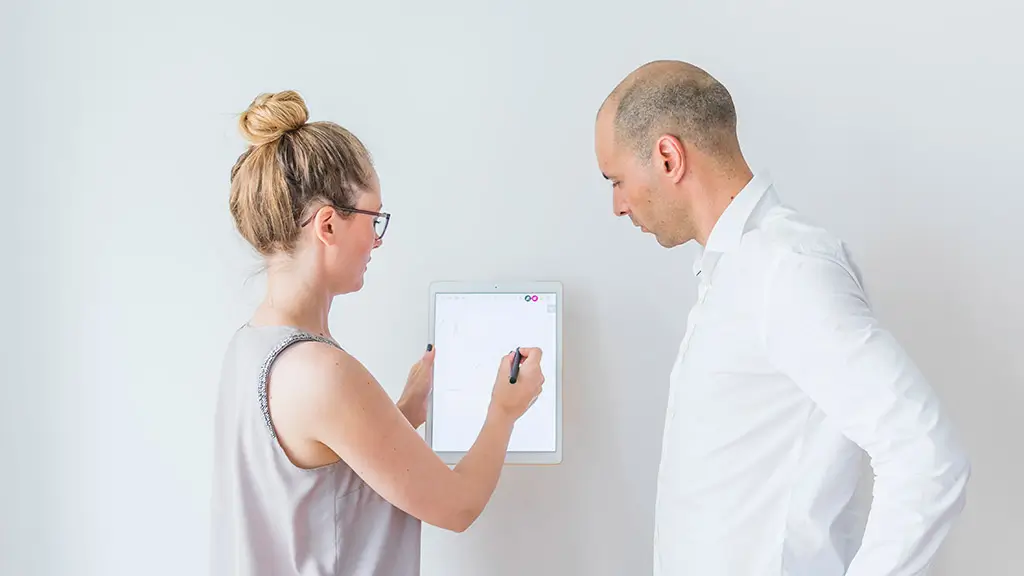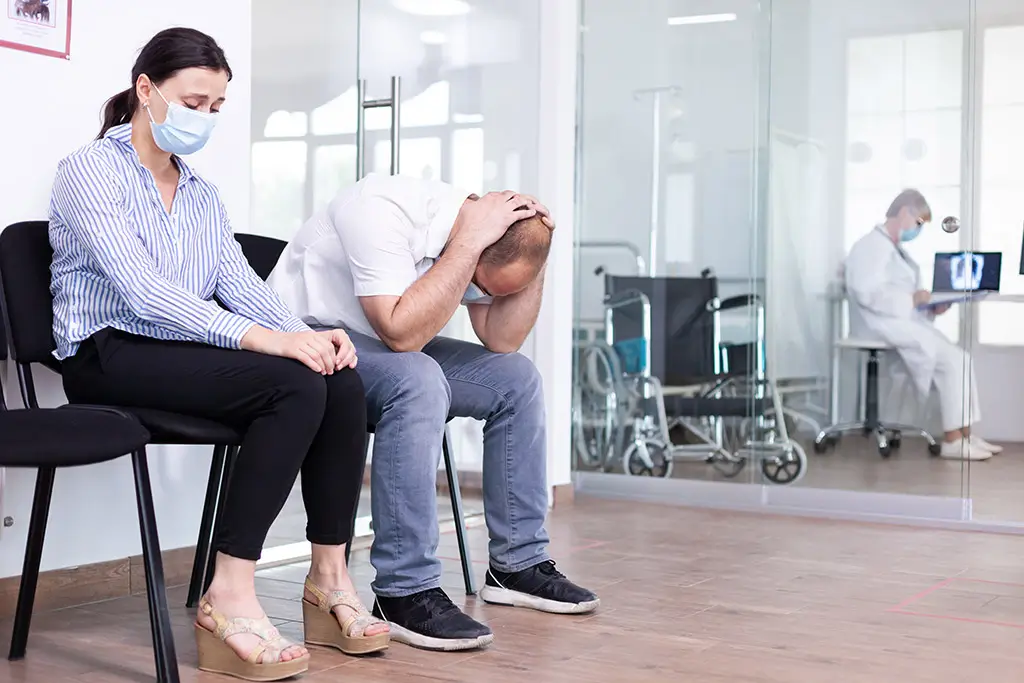Personalized Outpatient Drug Treatment in New Jersey.
Life-Changing Outpatient Drug Treatment Designed to Fit Your Situation and Schedule
Request a Callback
Outpatient Mental Health and Addiction Treatment in Freehold, NJ
Addiction and mental health disorders are widespread issues that deeply impact individuals and families across the United States. Millions of people face challenges with substance abuse, depression, anxiety, trauma, and other mental health concerns every day. According to the National Institute on Mental Health (NIMH), nearly one in five U.S. adults lives with a mental health condition, and the National Center for Drug Abuse Statistics reports that over 20 million Americans have a substance use disorder. These struggles can take a toll on every aspect of life—relationships, career, physical health, and overall well-being—leaving individuals feeling isolated and hopeless.
But there is hope. Specialized outpatient Mental Health and Addiction Programs in Freehold, NJ, like the ones we offer at Relevance Recovery, provide the support, tools, and ongoing care necessary to break free from addiction and overcome mental health challenges. Recovery is possible, and with professional guidance, you can reclaim control over your life.
At Relevance Recovery, we understand the complexities of mental health and addiction. Our goal is to provide compassionate and evidence-based outpatient services to individuals in our community. Every person’s journey is unique, and our programs are tailored to meet your needs, so you can start healing on your own terms.


What Is Outpatient Mental Health and Addiction Treatment?
Outpatient Mental Health and Addiction Treatment in Freehold, NJ, is a specially designed program that helps individuals address their struggles with addiction and mental health without the need for 24/7 residential care. It provides flexibility for those who cannot commit to inpatient programs but still need structured and professional support to begin their recovery journey.
Outpatient care involves scheduled sessions throughout the week, which may include individual counseling, group therapy, medication management, psychoeducation, and other personalized services. The goal is to empower you to live your life while receiving treatment tailored to your needs.
If you’re wondering whether you or someone you care about needs outpatient care, consider these signs and symptoms that might indicate a mental health issue or addiction:
- Persistent mood swings, irritability, or feelings of hopelessness
- Difficulty maintaining relationships or a career due to mental health or substance abuse problems
- Neglect of personal responsibilities or self-care
- Physical symptoms like poor sleep, fatigue, or unexplained aches related to stress or substance use
- Using substances to cope with emotions, trauma, or stress
If any of these resonate with you, reaching out for help through outpatient Mental Health and Addiction Treatment Programs in Freehold, NJ, could be the right step.
Who Needs Outpatient Mental Health and Addiction Treatment & The Importance of Early Intervention
Outpatient treatment is ideal for individuals who are experiencing mild to moderate addiction or mental health struggles and who have a stable living environment to support their recovery process. It’s also a great option for people transitioning out of a more intensive inpatient program or for those who prefer less disruption to their daily lives.
The need for outpatient programs often stems from the realization that behaviors, emotions, or substance use have become unmanageable. Importantly, early intervention can make a huge difference in the outcome of treatment. When issues like depression, anxiety, or substance use go unchecked, they can escalate, leading to more severe consequences such as physical illness, legal troubles, or additional mental health disorders.
Getting outpatient treatment as soon as possible gives you access to the tools and resources you need to regain control over your mental health or addiction challenges—at your own pace. At Relevance Recovery, we are committed to being there for you at the right time and in the right way.

How Effective is Outpatient Treatment for Mental Health Disorders & Substance Abuse?
Outpatient treatment can be highly effective for individuals with mental health disorders and substance use issues, especially when symptoms are moderate, and the person is medically stable and motivated to recover. According to the National Institute on Drug Abuse (NIDA), outpatient programs—when based on evidence-based practices—can be just as effective as inpatient treatment for many individuals, particularly when treatment duration and intensity are adequate (NIDA, 2018). Outpatient care offers a flexible structure that allows individuals to receive therapy, medication management, and peer support while continuing to live at home and maintain responsibilities like work or school.
Studies have shown that participation in Intensive Outpatient Programs (IOPs) can significantly reduce symptoms of both addiction and mental health disorders. A review published in Psychiatric Services found that outcomes for individuals in IOPs were comparable to those in inpatient care, with 50–70% of participants maintaining abstinence and improved mental health at follow-up. The success of outpatient care is often linked to consistent attendance, individualized treatment plans, and access to integrated services, particularly for those with co-occurring disorders.
Outpatient treatment also supports long-term recovery by helping individuals apply coping strategies in real-world environments. This daily integration of therapy and life helps reinforce positive behavioral changes and can improve relapse prevention. Additionally, because outpatient care is typically more affordable and accessible than inpatient programs, it offers a valuable option for early intervention, continued support after inpatient discharge, or long-term maintenance. When properly structured and supported, outpatient treatment can be a powerful, life-changing tool in the journey toward recovery and mental wellness.
What to Expect at Relevance Recovery’s Outpatient Mental Health and Addiction Treatment in Freehold, NJ
When you choose Relevance Recovery, you can expect a compassionate and supportive atmosphere from the moment you walk in. We design our outpatient programs to be flexible, accessible, and personalized for each individual seeking help.
Our outpatient Mental Health and Addiction Treatment Programs in Freehold, NJ, deliver a blend of therapeutic services that meet clinical standards while offering a sense of community. Our holistic approach ensures that we focus not only on immediate symptoms but also on underlying causes and long-term healing.
Here’s what you can expect when you begin treatment with us:
- Personalized Assessments: We evaluate your unique needs and work with you to design a plan tailored to your goals and recovery journey.
- Evidence-Based Therapies: With approaches such as cognitive-behavioral therapy (CBT), trauma-informed care, and mindfulness-based practices, we guide you through healing with proven methods.
- Group Healing Sessions: Learning to connect with others in similar situations creates a support system that fosters understanding and emotional growth.
- Skill Building: We provide strategies to manage stress, triggers, and cravings—armoring you with tools that ensure long-term success.
- Flexibility: Our outpatient programs work with your schedule and lifestyle for minimal disruption, allowing you to continue work, school, or family commitments.
At Relevance Recovery, our goal is for you to feel empowered to make positive, lasting changes in every area of your life.
The Benefits of Choosing a Mental Health and Addiction Rehab in Freehold, NJ
Finding the right treatment center can feel intimidating, but you deserve a program that truly supports your needs. Choosing Relevance Recovery for outpatient Mental Health and Addiction Treatment in Freehold, NJ, offers distinct advantages to make your recovery experience as smooth and rewarding as possible.
Our location brings convenience and accessibility to individuals in Freehold, NJ, and the surrounding areas. You won’t need to uproot your life to access specialized care. Being near the heart of your community allows for continuous healing and reintegration into daily routines without disruption.
Additionally, we’ve built our rehab program in Freehold, NJ to emphasize flexibility. We understand that full-time residential treatment isn’t feasible for everyone—and outpatient services can keep your recovery efforts moving forward around your commitments. Whether you need treatment just a few days each week or are looking for an intensive outpatient program (IOP), we can meet you where you are.
Our programs also focus not just on helping you recover but on creating a foundation of sustainable health. The skills you learn with us don’t disappear once treatment ends. Instead, they help you maintain your mental health and sobriety well into the future.

Key Features of Relevance Recovery’s Programs
At Relevance Recovery, we take pride in being one of New Jersey’s leading outpatient mental health and addiction treatment centers. Our mission is to provide comprehensive, individualized care that empowers each client to achieve long-term healing and emotional well-being. Through a compassionate and clinically grounded approach, we create an environment where individuals can thrive as they move forward in their recovery journey.
One of the key features that sets us apart is our customized treatment planning. Every individual who comes through our doors receives a plan tailored to their specific needs, challenges, and goals. An individual’s treatment plan may consist of what is called a step-down program – meaning they enter into our partial care program and progress to our outpatient rehab in Freehold overtime, or an individual can enter directly into outpatient or IOP.
We also specialize in dual diagnosis care, providing integrated treatment for individuals facing both substance use and mental health disorders. This approach ensures that underlying mental health conditions are not overlooked but addressed alongside addiction recovery for a more complete and lasting outcome.
Our programs are led by a team of experienced professionals, including licensed therapists, addiction counselors, and behavioral health specialists. They bring compassion, skill, and dedication to every aspect of treatment. In addition, we understand the vital role of loved ones in the recovery process, which is why we offer family support programs designed to promote healing and healthy communication within the family system.
We also offer a range of holistic services such as yoga, meditation, and fitness programming to support mind-body wellness. Combined with our robust relapse prevention strategies, which help clients identify and manage triggers before they escalate, our care is designed to support long-term success. At Relevance Recovery, we recognize that recovery is a lifelong process—and we’re committed to helping you navigate every step with strength, support, and purpose.
We Work With Most Major Insurance Providers
- Aetna
- Amerihealth
- Anthem
- Beacon
- Behavioral Health Systems
- BCBS—Most BlueCross & BlueShield Plans
- Carelon Behavioral Health
- CareFirst
- Cigna
- ComPsych
- Coventry
- Empire BlueCross BlueShield
- GHI
- Highmark
- Humana
- Magellan
- MagnaCare
- Meritain Health
- MultPlan
- NYSHIP (New York State Insurance Plan)
- Optum
- Oxford
- PHCS
- Self-Pay
- TRICARE
- UHC
- UMR
- VA Insurance
- 90 Degree Benefits
- Aetna
- Amerihealth
- Anthem
- Beacon
- Behavioral Health Systems
- BCBS—Most BlueCross & BlueShield Plans
- Carelon Behavioral Health
- CareFirst
- Cigna
- ComPsych
- Coventry
- Empire BlueCross BlueShield
- GHI
- Highmark
- Humana
- Magellan
- MagnaCare
- Meritain Health
- MultPlan
- NYSHIP (New York State Insurance Plan)
- Optum
- Oxford
- PHCS
- Self-Pay
- TRICARE
- UHC
- UMR
- VA Insurance
- 90 Degree Benefits
At this time, we do not accept Medicaid or Medicare.
Conditions We Treat at Our Outpatient Mental Health and Addiction Treatment Facility in New Jersey
Relevance Recovery specializes in treating a wide variety of mental health and substance use issues. Among them are:
- Anxiety disorders
- Depression and mood disorders
- Bipolar disorder
- Trauma and PTSD
- Substance use disorders, including alcohol and illicit drugs
- Prescription drug abuse
- Behavioral addictions, such as gambling
Our goal is to address the root causes of these concerns, finding effective strategies to help you recover and thrive. We take a trauma-informed and client-centered approach, acknowledging your unique story and experiences.
Using Insurance for Flexible Mental Health
and Addiction Treatment in New Jersey
If you’re worried about the cost of outpatient Mental Health and Addiction Treatment in Freehold, NJ, it’s important to know that financial support is available. Relevance Recovery works with most private health insurance plans to offset the cost of treatment. From detox to therapy sessions, we’ll help you navigate your benefits to make recovery as accessible as possible.
We understand that dealing with insurance paperwork can feel overwhelming, so we’re here to guide you through the entire process. Let us take the stress off your shoulders so you can focus on what matters most—healing.
Whether you’re insured through an employer plan or shopping on the marketplace, reach out to us to discuss your insurance coverage and how it applies to your outpatient program.
Start Your Journey at Relevance Recovery
If you’re searching for outpatient Mental Health and Addiction Treatment near me, look no further than Relevance Recovery in Freehold, NJ. Recovery is a journey, and you don’t have to walk it alone. From the moment you reach out, we’re committed to supporting you in overcoming addiction and improving mental health in a way that feels comfortable, empowering, and sustainable.
Take the first step toward reclaiming your life today. Contact us to learn more about the programs available at our New Jersey outpatient Mental Health and Addiction Treatment Center. Together, we can help you take control of your future and build a healthier, happier tomorrow.
